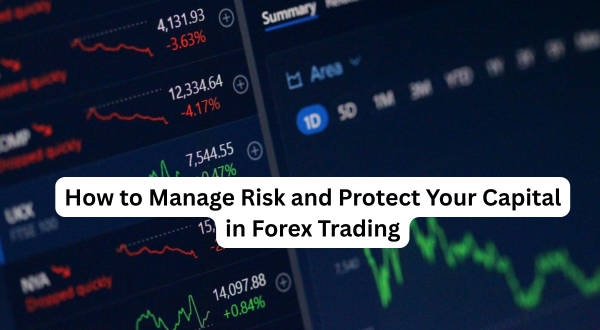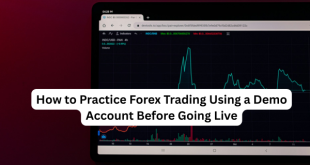Forex trading can be highly rewarding, but it’s also risky. Many new traders focus solely on profits, ignoring one of the most critical components of long-term success—risk management. If you don’t protect your capital, even the best strategies can lead to major losses.
In this post, we’ll cover simple and effective ways to manage your risk and keep your trading account safe.
1. Never Risk More Than You Can Afford to Lose
This may sound obvious, but it’s the golden rule of trading. Never risk money you can’t afford to lose. Your trading capital should be money that, if lost, won’t affect your ability to pay rent or put food on the table.
Tip: Risk no more than 1–2% of your account balance on a single trade.
2. Use Stop-Loss Orders
A stop-loss is a preset level where your trade automatically closes if the market moves against you. It prevents small losses from becoming big disasters.
Example:
If you buy EUR/USD at 1.1000 and set a stop-loss at 1.0950, your trade will close automatically if the price drops by 50 pips—protecting your account.
Bonus Tip: Don’t move your stop-loss hoping the market will reverse. Stick to your plan.
3. Calculate Position Size Before Every Trade
Your position size determines how much you are risking per trade. Use this formula:
Position Size = Account Risk Amount / (Stop Loss in Pips × Pip Value)
There are also free position size calculators online—use them!
4. Diversify Your Trades
Don’t put all your eggs in one basket. If you trade only one currency pair, or open multiple positions on correlated pairs, your entire account can crash from one market move.
Solution: Spread your trades across different pairs and asset types.
5. Avoid Overleveraging
Leverage allows you to control a large trade with a small deposit. While it can multiply your gains, it can also wipe out your account in minutes.
Example:
Trading with 100:1 leverage means a 1% move can result in a 100% loss.
Use low leverage—and remember, high leverage is not your friend.
6. Keep Emotions in Check
Greed, fear, and revenge trading destroy more accounts than bad strategies do.
Create a plan and stick to it. Avoid trading when you’re angry, overly confident, or desperate to recover losses.
7. Use a Trading Journal
Keep track of every trade: entry, exit, stop-loss, reason for trade, outcome, and emotion. Over time, your journal will highlight patterns and help you fix bad habits.
Conclusion
Making money in forex isn’t just about finding winning trades—it’s about protecting your capital. By following sound risk management principles, you give yourself the best chance of staying in the game long enough to become consistently profitable.
Remember: Survive first, thrive later.
 UBUCH ubuch | Honest Tech Reviews & Tutorials for Everyone
UBUCH ubuch | Honest Tech Reviews & Tutorials for Everyone




